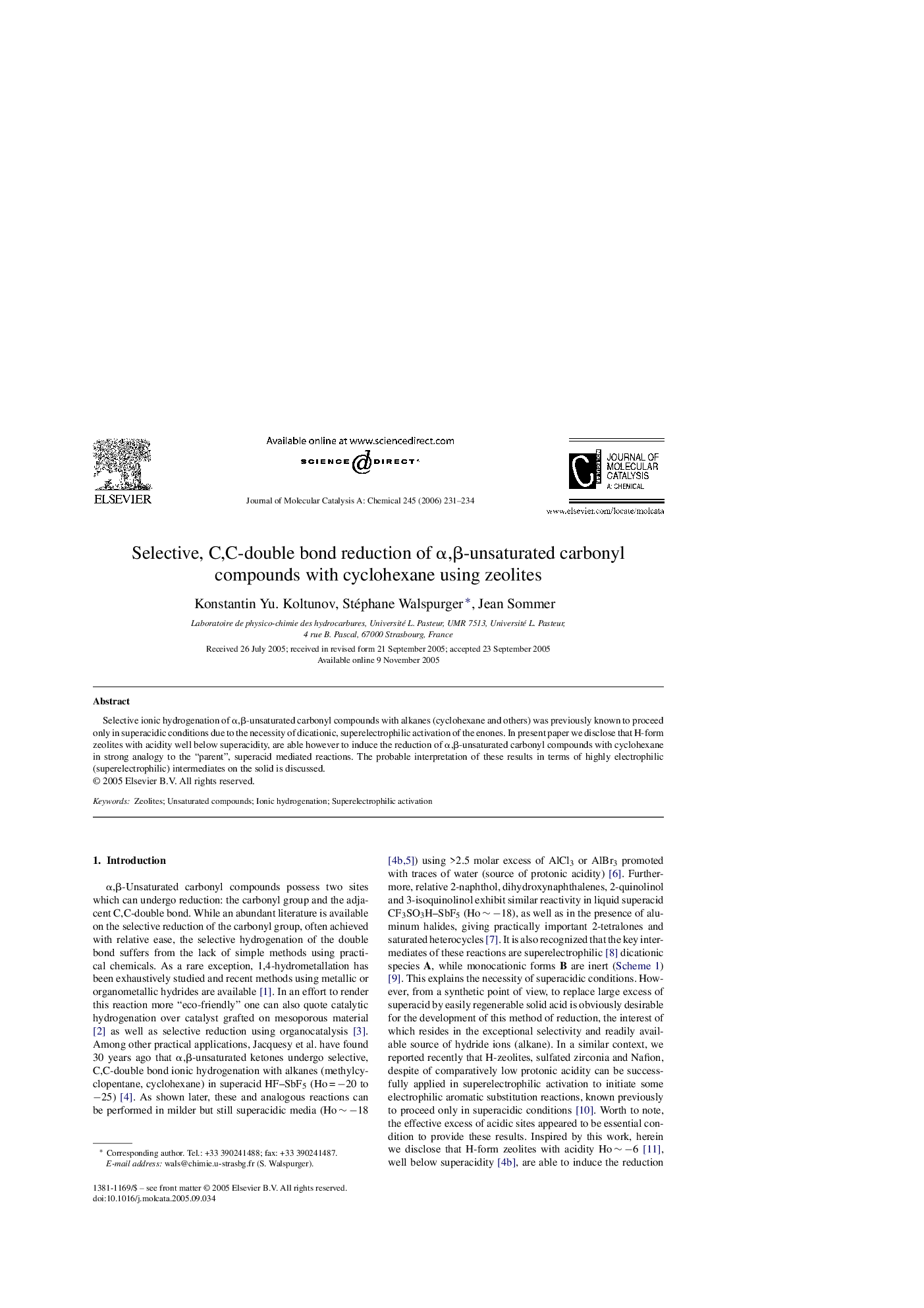| Article ID | Journal | Published Year | Pages | File Type |
|---|---|---|---|---|
| 69157 | Journal of Molecular Catalysis A: Chemical | 2006 | 4 Pages |
Selective ionic hydrogenation of α,β-unsaturated carbonyl compounds with alkanes (cyclohexane and others) was previously known to proceed only in superacidic conditions due to the necessity of dicationic, superelectrophilic activation of the enones. In present paper we disclose that H-form zeolites with acidity well below superacidity, are able however to induce the reduction of α,β-unsaturated carbonyl compounds with cyclohexane in strong analogy to the “parent”, superacid mediated reactions. The probable interpretation of these results in terms of highly electrophilic (superelectrophilic) intermediates on the solid is discussed.
Graphical abstractThe paper describes selective reduction of C,C-double bond of unsaturated carbonyl compounds using readily available reductant (cyclohexane) and regenerable solid acid—HUSY-zeolite. This presents a novel example of the unusual catalytic ability of solid acids, which despite of comparatively low protonic acidity are able to perform reactions only expected to occur under superacidic conditions. Figure optionsDownload full-size imageDownload as PowerPoint slide
